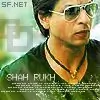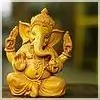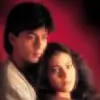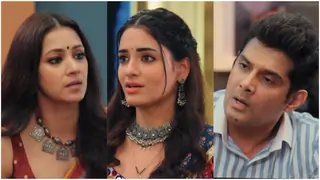Sunday April 8, 02:47 AM
From simple celebrity coverage of the old where senior journalists were friends with stars and suppressed quite a few nasty tidbits about them, we are rapidly moving into paparazzi territory where nothing is sacred or private when it comes to people in the limelight.
The desire to live vicariously, voyeuristically and yes, vapidly - by blocking out more serious, sombre news - is what drives the paparazzi phenomenon the world over. In India, where only a handful of celebrities, evenly divided between cricket and films, actually qualify as genuine A-listers, the hunger for interaction gets sharper and more focused; the questions a little more personal and uncomfortable.
Exclusive Games
Paul Danahar, BBC's South Asia bureau chief, analyses this change. "There was no competition in India ten years ago. Now it is one of the most competitive media markets in the world." The quest for survival in an overcrowded reporter-eat-reporter circuit is why the paparazzi culture is slowly but surely gaining ground in India, according to Danahar. Everything now revolves around getting an "exclusive." Rajdeep Sardesai, managing editor of CNN/IBN, Channel 7 and IBN 7, compares the media to a "carnivorous beast" that wants to feed on all possible events and generate news in any way possible.
"They never refuse to pose. People like Salman Khan and Shah Rukh were humble when they began their careers and they are still humble. It is the new lot that don't know how the system works. When they are just a release or two old, they start giving attitude and don't want to be clicked. They lose out on the visibility the media can give them. And when their careers come to a grinding halt, they want to pose for pictures again. But by that time, it is usually too late."
Shah Rukh Khan, one of the few stars who can inspire fan mobs, is matter-of-fact about this relationship. "When I want to boost my film, I will have three back-to-back press conferences in a day and people will come. It is not a question of using the media - I'm giving them something too. We are all doing what we have to do."
But what happens when the intrusion is not expected or planned for, given that the paparazzi deal in candid snaps. Can celebrities really demand to be left alone when they have chosen to live in the limelight?
According to director and talk show host Karan Johar, there is no such thing as privacy in a celebrity's life. "If you want privacy, you should become a doctor or something." Speaking about the relationship between the media and celebs, he says, "It's like a marriage. You can love them, hate them but you can't do without them. The media is the bridge between a celebrity and the common man. How can we do without it?" But even then he believes there are certain lines that the press should not cross. In his words, "what I do in my bedroom is private."
Point taken.
Going for Broke
But with the fabulous assets that most stars have at hand, that include beefy bouncers, media managers and friends at high places, it is a little difficult to imagine how a celebrity can be hounded in this country. Especially since most Indian journalists have meagre resources to fall back on.
So in 99 per cent of the cases, what you see in print and on TV has the tacit consent of the stars. You will never have photographers in India getting clear shots of a celeb couple sunbathing on their yacht. The reason? Well, the equipment is too expensive and the payments not so great here.
Most celebrity pictures sell for a measly Rs 100 to Rs 500 a picture. Compare that to a fee of $500,000, the amount reportedly paid for the Brangelina-on-the-beach pictures. In India, for unusually spicy pictures like that of Amitabh Bachchan and Rekha chatting, the price goes up to only Rs 5000. Such rates don't justify shelling out lakhs for the equipment.
Sanjay Nigam of TV Today agrees, stating that there is no danger of the Indian scenario getting as bad as it is in the West, unless the "commerce of it improves." Also publishing unfavourable pictures means a blanket boycott of the photographer or reporter in question by the star. Yogen Shah puts it succinctly. "Why would I want to spoil my relationship with them for such measly amounts. I would rather take their consent while shooting pictures and stay in their good books."
In addition, of course, is the clout of the stars themselves. "You can't demand privacy. But you can create it," says Shah Rukh. "If I don't want a photographer to sit on some lamppost and take pictures of what's happening on my terrace, then I better cover my terrace. When I have a private party in my house, I keep it private. But the press has the right to hang around outside and try and get pictures."
The decision to come out and speak to the press, like he did last year on his fortieth birthday, however cannot be forced on him. But it does go a long way in building goodwill. By honouring some of the basic demands of the press, Khan creates a comfort zone so that requests to not shoot his kids, for example, are honoured.
http://in.news.yahoo.com/070407/32/6e9s7.html

































2